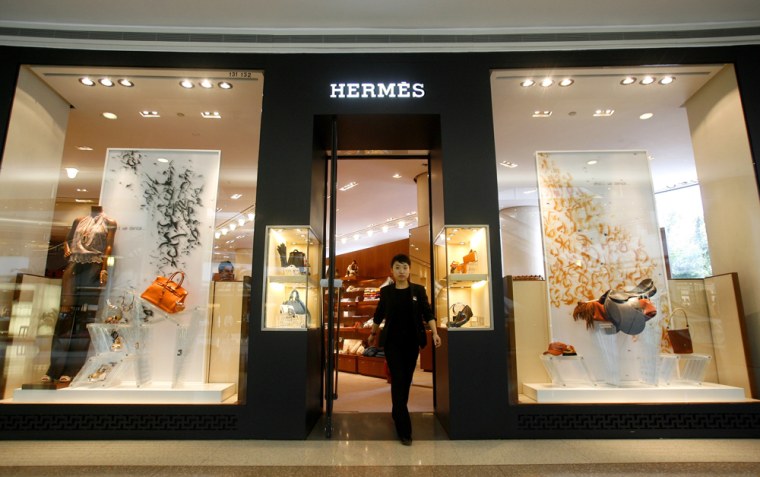China is one of the fastest-growing markets for luxury goods in the world, but not just because of the sheer size of the country.
It's all about demographics. It not only has a burgeoning class of nouveau riche, it's also got an entire generation of what some may call spoiled brats who have a taste for luxury but also money to spend.
In China Liu Ming is known as a "little emperor." He was born under the policy of one child per family, and his parents have given him everything, including a garment factory in Beijing so he can launch his own women's apparel line, and money to buy a kindergarten, his latest investment.
At 23, he is doing well for himself. He has bought a house, and though he is tight on cash, he knows what he likes.
“In China, parents will kind of donate their money to their kids forever, so the kids will never have to make a cent on their own. They don't know how to make money; they know how to spend money,” said Hedy Lee, author and social critic in Beijing.
Luxury goods retailers are zeroing in — with the little emperors, the nouveau riche and an estimated 320,000 millionaires. This communist country is now a country of consumers who want to flaunt what they have.
Along a historic strip of Shanghai, 18 Bund is one of the first buildings open to luxury retailers, and now they're all here. It is estimated about 25 percent of the world's luxury goods over the next 20 years will be consumed in shops like these right here in China.
Cartier plans to go from 16 to 25 stores by the end of year. Gucci opened a flagship store in Beijing that outsized its Hong Kong location. And Saks Fifth Avenue has secured a 350,000-square-foot location in Shanghai as the site of its first store in China opening in 2009.
“Every industry is crowded. But if we open Saks today, we are the first high-end department store and still have first-mover advantage,” said Tin Tse of Roosevelt Investment China.
Tse’s company has the rights to the Saks name in China, which goes a long way with consumers here.
“People in China relate Fifth Avenue with high fashion, relate New York with fashion and the most sophisticated things in the world,” he said.
He expects to be profitable within 24 months of opening and is already scouting locations in Beijing.
Liu, the little emperor, has already decided what he will buy next.
“I have been thinking about upgrading to a bigger car, a Range Rover,” he said.
Still, China is a country of massive income gaps. And while it is a growing market for luxury retailers, it is also a country full of peasant farmers, who on average make less than $600 a year.
